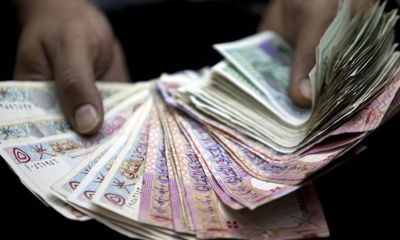Oman’s Shura Council has moved a draft legislation on personal income tax to the State Council. If passed, personal income tax will become a first in the Gulf Cooperation Council (GCC) region and could affect high-earning foreign talent and rich Omani citizens.
The likelihood of the legislation being enacted remains high. The proposed tax targets high-income earners in the country. Citizens are set to be taxed on net global income above $1 million and foreign nationals on Oman-sourced income above $100,000.
The expected reported tax rates range from 5% to 9% for foreign nationals, amid a flat rate of 5% for Omanis beyond the specified threshold. But the exact rates and additional details on the proposed PIT are still getting finalised.
Factors behind Oman rolling out personal income tax
The potential introduction of PIT supports Oman’s Vision 2040 – aimed at diversifying revenue streams and reducing dependency on oil revenue, said Syed Naqi, senior director, lead reward and people services for the Middle East at global consultants Alvarez & Marsal.
Oman is rich in agriculture but the biggest contributor to the country’s GDP is oil and gas, said Anurag Chaturvedi, chief executive at tax advisory firm Andersen UAE. The proposed personal income tax could create a stable and diversified revenue stream.
The Gulf state needs to diversify its revenue base to replace declining oil revenue, manage oil price volatility and address inequalities, noted Chaturvedi. The income generated from PIT can support public services, infrastructure and social programmes.
“Considering fierce competition globally, higher living standards, generous subsidies for food and fuel, and pressure to reduce the fiscal deficit, Oman requires additional non-resource revenue through taxes to sustain them,” Chaturvedi further mentioned.
Personal income tax situation in other GCC countries
It is still early to say if the potential roll-out of personal income tax in Oman is mirrored across other GCC countries. But the UAE and Saudi Arabia previously strongly indicated that they have no plans yet to impose PIT as they seek to attract more companies and talent.
Naqi said, in the short term, the introduction of PIT may affect Oman’s competitiveness relative to other GCC countries for attracting foreign talent. But PIT is just one factor among several others that companies and people take into account before moving to the region.
“If the introduction of PIT is accompanied by other economic reforms [such as enhancing transparency in tax collection and public expenditure], it could contribute significantly to building public trust and positively improve Oman’s economic competitiveness,” he added.
Read More: Explore key factors helping UAE lure more super-rich Indians






















